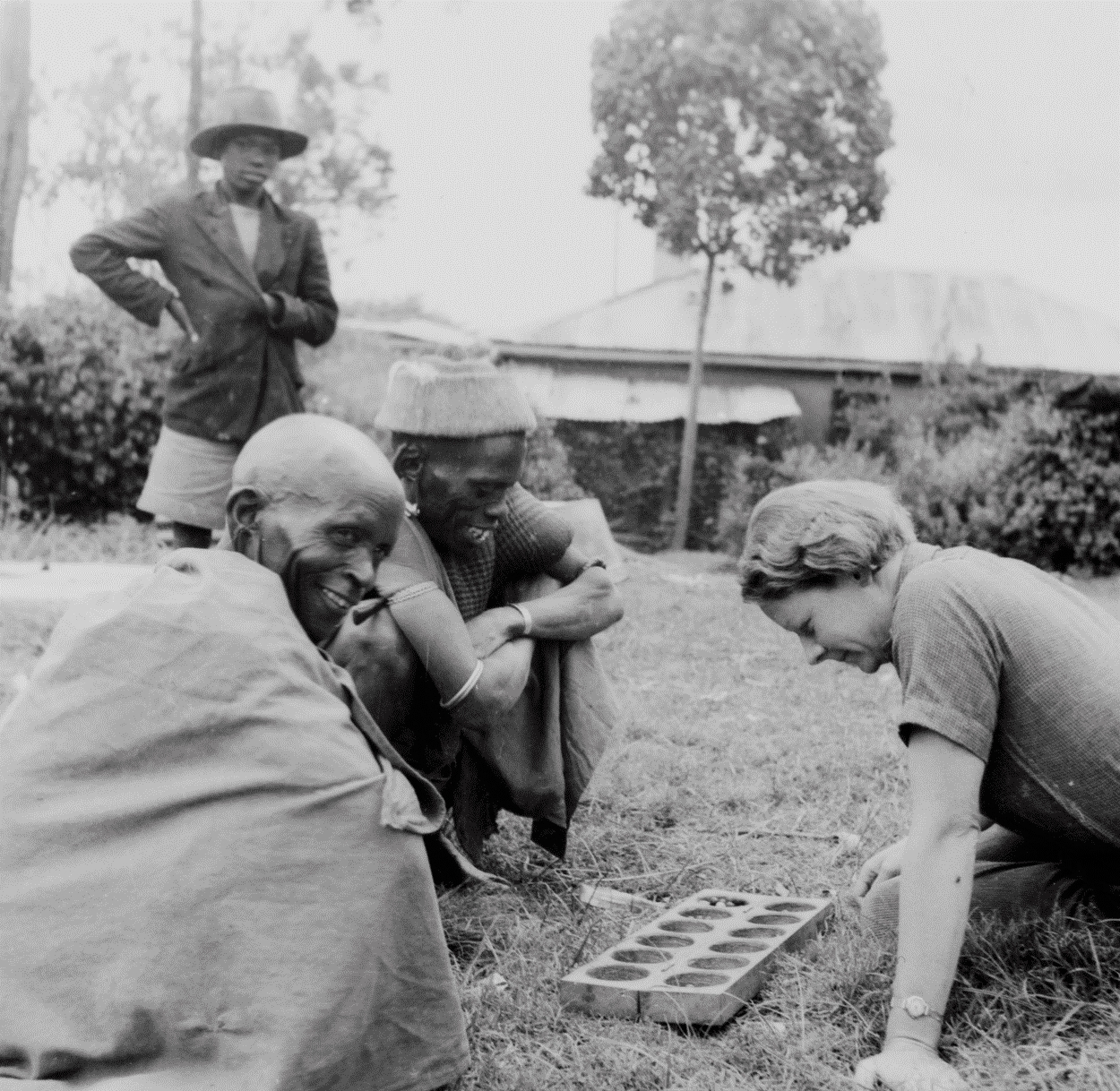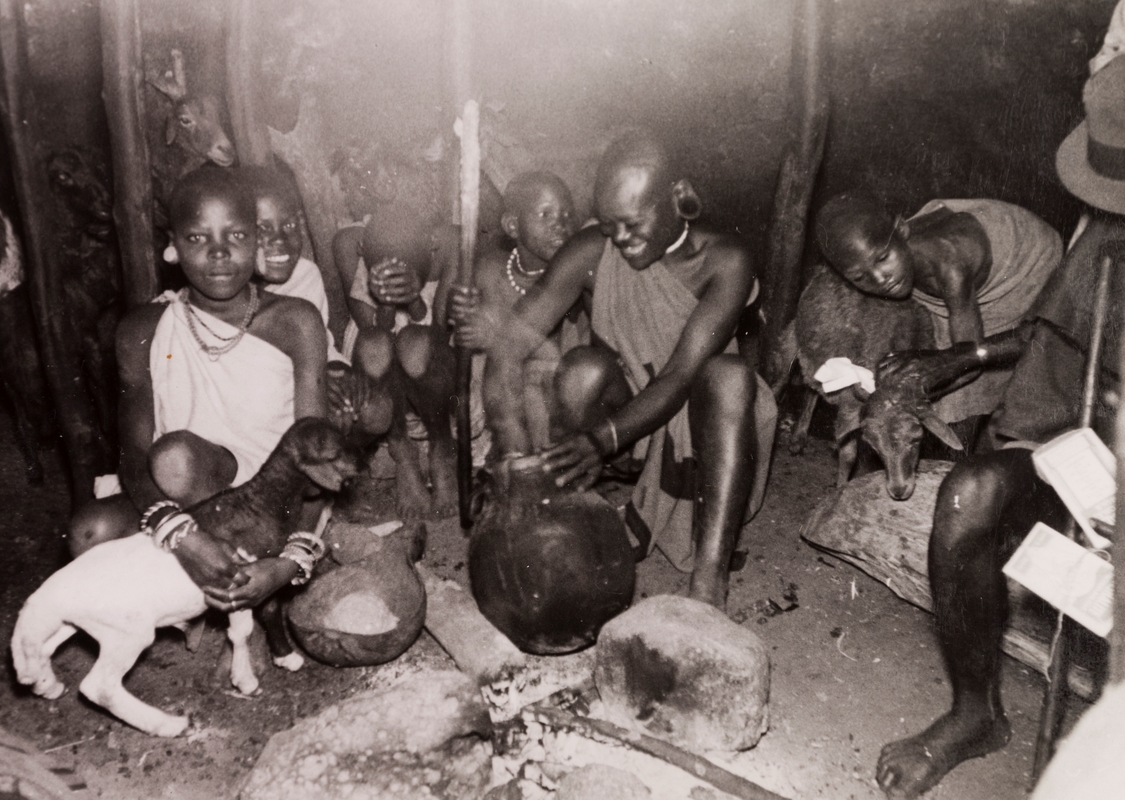Fanning the Flame Trees: uncovering the photographs of Elspeth Huxley at Bristol Archives
Posted on by Fay Curtis.
by Nicky Sugar, Bristol Archives
One of the gems in the British Empire and Commonwealth Collection is the photographic archive of the writer and broadcaster Elspeth Huxley. With nearly 12,000 images, it is the largest collection we’ve catalogued since the start of the Exploring Empire project.
Elspeth Huxley (1907-1997) spent much of her childhood in Kenya after her parents emigrated
in 1912.
Often left to her own devices while they struggled to make a profit from farming, she developed a love for the local wild animals and Kikuyu people which stayed with her.
She brought many colourful stories from these years to life in her semi-autobiographical novels ‘The Flame Trees of Thika’ (adapted for TV in the 1980s) and ‘The Mottled Lizard’.
After studying agriculture and journalism, Huxley worked as a press officer before receiving her first book commission in the 1930s. She became a successful writer and divided her time between the UK and Africa for most of her career. She wrote articles on diverse themes including agriculture, industry and politics, as well as publishing 30 fiction and non-fiction books.
As radio broadcasting developed, she added this to her skills, becoming particularly well-respected for her insights into African independence.
When the photographs arrived in the archives, some of the images were still in their original packaging with titles such as ’Safari to Lake Baringo 1934’.
However, many more had been pulled out of these series into thematic sets such as ’Wild Animals’ or ’White Settlers’, to reflect subjects which Huxley illustrated in her publications.
Our challenge was to document the journey the images had been on, using scraps of evidence such as notes on the back of photographs to find out which sets had belonged together. This has helped us to identify information about people and locations which might otherwise have become lost in time.
The collection also contains a large number of negatives and contact prints. These provided invaluable clues to the original order of the photographs, but matching them up was a painstaking process. With help from Ibi, one of our volunteers, we eventually put many stray photos back into the correct series. One of the most disordered groups was Huxley’s images from the 1953 Mau Mau rebellion, which can now be used by researchers.
Huxley took some of her most fascinating images when she was living inside a Kikuyu reserve in 1937. Unusually for a white woman, she was granted access to tribal customs and ceremonies, all of which she documented in her photographs.
As archivists, we have a responsibility to describe these events with sensitivity and respect. Where her captions contain commentary which would now be expressed differently, we take care to record the original caption but to make clear that this is a product of its time.
Huxley’s photographs are powerful: despite being black and white, they still seem to show the colours of Africa. The clues uncovered during cataloguing have enhanced the images even further, allowing more stories to be discovered about the people and places she captured on film so long ago.
The Elspeth Huxley photographs are now available for research. For more information, please contact [email protected]
Reference:
- Cover photo: A warehouse of confiscated illegal ivory, Mombasa, 1933 (ref.1995/076/1/1/13/1)
With thanks to
This catalogue was produced with support from the National Cataloguing Grants Programme for Archives


One comment on Fanning the Flame Trees: uncovering the photographs of Elspeth Huxley at Bristol Archives
Puzzled about different parental names Tilly and Robin – Jos and Nellie. Why?